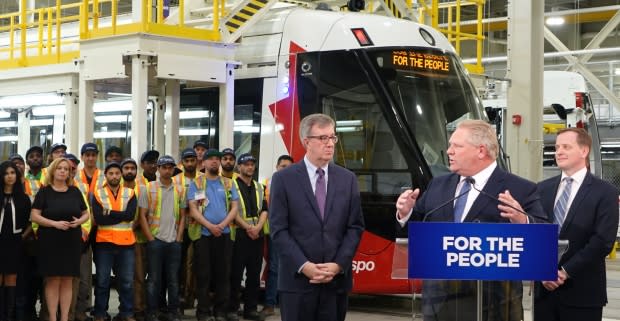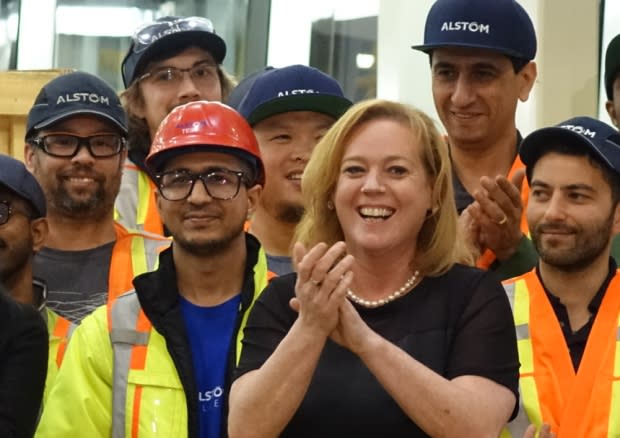Premier confirms province's $1.2B share for Stage 2 LRT
Ontario Premier Doug Ford has confirmed the province's contribution of $1.2 billion toward Ottawa's Stage 2 LRT project.
Ford made the announcement Friday morning as he and Transportation Minister Jeff Yurek visited the garage on Belfast Road where Alstom workers are assembling the city'[s new light rail trains.
The project, now estimated to cost $4.66 billion, will extend light rail to the city's growing suburbs.
The province's contribution had originally been promised by the Liberal government, but was under review by the Progressive Conservatives.
Cash in hand
While city officials had been assured the provincial money was coming, they needed a signed contribution agreement from the Ontario government before signing the multi-billion-dollar contracts for Stage 2 LRT. The contract with SNC-Lavalin has to be completed by March 29.
"We're helping you get to work and home to your family a lot faster, [helping] you see the wonderful attractions here in our nation's capital with ease," Ford said.
Ford said the investment will mean less traffic congestion and less competition for parking for people who don't take transit, and will encourage job growth, both through construction and businesses along the rail network.
The fact that the the initial stage of the LRT network has yet to open after three delays did not play into the decision to fund Stage 2, Ford said.
"I know [Watson is] keeping a sharp eye on things, and he's a great leader of this city, so it never fazed me at all."

Ford said he'd like to wait until Stage 2 is complete before discussing funding for any further expansion of Ottawa's rail network.
The Confederation and Trillium line extensions will stretch to Trim Road, Moodie Drive and Riverside South, with a link to the Ottawa International Airport.
It will add 24 stations and 44 kilometres, to be finished by 2025.
The federal government is also covering $1.2 billion of the bill for Stage 2, while the city must find a way to pay for the rest — an amount that has ballooned considerably from initial cost estimates.
The city is expected to take on more long-term debt to pay its share, which now represents half the cost of the project.


